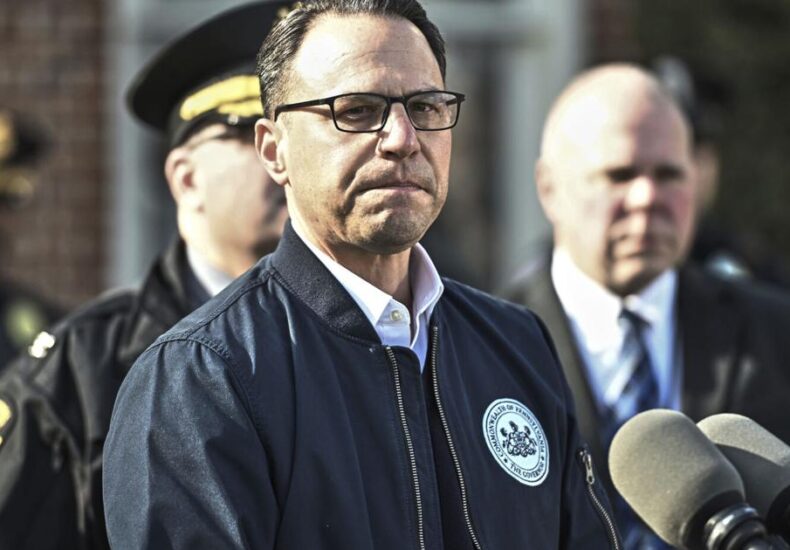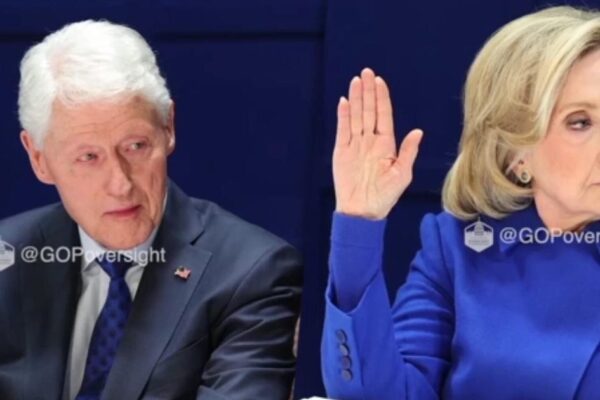
Pennsylvania’s new budget boosts education funding, leaves transit waiting
Legislators returned to Harrisburg on Monday with a budget for the first time since June. After months of negotiations, publicly and privately, the General Assembly passed a $50.1 billion budget on Nov. 12 that Gov. Josh Shapiro signed into law the same day. The fiscal year 2026 budget contains over $900 million in new spending for education, including $565 million more in public school adequacy funding, $125 million for infrastructure, along with $175 million in reduced spending on cyber charters. A combined $46 million more will go to recruiting and retaining child care workers, with $11 million more toward food assistance programs. However, no new investments were made toward public transportation. “Pennsylvania is on the rise, and this budget continues our progress, solving problems that Harrisburg has ignored for years, creating more opportunity for our students, workers, and businesses, and putting the Commonwealth on a path to sustained growth,” said Shapiro in a release on Wednesday following his signing. “In a divided legislature, we proved once again that Democrats and Republicans can come together to get stuff done for the good people of Pennsylvania — cutting taxes, investing in education and workforce development, supporting law enforcement and reducing crime, and keeping our economy growing. “Since my first day in office, I’ve been focused on solving the most pressing problems we face by bringing people together and getting stuff done — this budget continues that progress and will speed our rise,” he added. Speaker of the House Joanna McClinton released a statement following the signing as well. She highlighted the new education spending, along with a 10% tax credit that will be offered to working families. The Working Pennsylvanians Tax Credit is projected by Shapiro’s team to return $193 million to residents of the Keystone State who qualify. “First, the budget continues Pennsylvania’s commitment to equitable school funding for districts like William Penn and Philadelphia,” McClinton’s statement reads in part. “With more than $500 million directed to historically underfunded districts, schools can continue to reduce class size, offer more learning opportunities for students, provide free breakfast, and make sure every child has the tools they need to succeed. “Finally, this budget continues to strengthen public safety with an increase for violence prevention grants and by renewing funding for BOOST — or the Building Opportunity through Out of School Time program, and for school safety and security grants,” the speaker added. “While it took too long, I was resolved to secure a budget that reflects our shared values by investing in our schools, families, and communities, and this plan satisfies those conditions.” Shapiro has continued to support violence intervention solutions. Statewide gun violence is down 42% and deaths by firearm are down 38% since he took office in 2023. Philadelphia has followed those trends, as year-to-date homicides on Nov. 16 are down 57% from the same date in 2022. The new budget includes a $5.56 million increase for the violence intervention programs that fund grants for community organizations. “We also can show data that encase the investments in this space has provided specific and significant results, in terms of what community groups can expect,” said State Sen. Anthony Williams of the grants in an interview Monday. Shapiro told reporters in September that transit funding would not be part of the budget. The Democrat-controlled House passed measures that would bring new money to SEPTA and other transit agencies for the third consecutive year. For the third straight, the Republican-led Senate did not pass those measures, instead sending a plan that forced SEPTA to spend reserves earmarked for capital improvements to cover the budget deficit. State Rep. Malcolm Kenyatta told The Philadelphia Tribune in June that he would not vote for a budget that did not provide adequate transit funding. He did vote for the budget Wednesday, along with most members of the Philadelphia delegation. “For everybody paying attention to this, it’s crystal clear that they were never going to vote for transit funding, in a large part because Senate Republicans who represent … southeastern Pennsylvania refuse to do their job.” Kenyatta said on Monday. “Back in September, when that decision was made, it was obviously one that I didn’t want to see happen. After a shutdown of the state government that went for [135] days, there were a host of other issues that needed to be addressed.” Kenyatta pointed to the two Bucks County Republicans, Sen. Frank Farry and Sen. Tracy Pennycuick, as prime targets to flip seats and the state Senate next year. The Democratic National Committee vice-chair claims the senators are more interested in playing to their base with “intransigence” to avoid primary challenges than delivering for constituents. Pennycuick sent a statement in response via email, supporting the $1.2 billion counterproposal Senate Republicans passed in August. This would have meant more funding by reallocating state money from capital budgets to operating costs for transit and roads. The House voted down the bill upon receipt. “I understand the importance of a strong and robust transportation network across our great state,” the statement reads in part. “Mass transit is a key part of helping many Pennsylvania residents get where they need to go, which is why the Commonwealth already provides more than $2 billion every year for mass transit programs statewide. In fact, Pennsylvania is the fourth highest in the nation in providing financial support to our statewide transit systems and that each year. While SEPTA must still undergo additional reforms to bring its finances back into balance, I look forward to working with its leadership to chart a path toward long-term stability.” Williams said he expects transit funding to be a major focal point of budget talks next year. He has co-sponsored legislation that would put fees on the “skill game” machines and limit their availability statewide. Half the $300 million collected from the fees would go toward public transportation. “The conversation about revenue to support transit, and other areas, is critical to the next budget being done,” he said. “I think that conversations about enhancing revenue without increasing taxes becomes kind of central before we even get to negotiations.” Williams said these conversations could include recreational cannabis or other gaming options.
https://www.phillytrib.com/news/state_and_region/pennsylvanias-new-budget-boosts-education-funding-leaves-transit-waiting/article_67ae3e44-2576-41d3-80ce-7ba48eae557c.html
You may also like
更多推荐
You may be interested
Guns and butter: Russia chooses both
A required part of this site couldn’t load. This may...
Saudi Arabia & Pakistan Ink Defence Agreement Stating ‘Attack On Either Will Be Considered Attack On Both’
**Saudi Arabia and Pakistan Sign Strategic Mutual Defence Agreement** *Riyadh:*...
Congress Leader Rahul Gandhi Says He’s ‘Getting Help From Inside ECI’ To Expose Alleged Vote Fraud – Video
New Delhi: Congress leader Rahul Gandhi has alleged that he...
 The New York Times
The New York Times
- Dan Crenshaw Loses to Steve Toth for Texas District 2 2026 年 3 月 4 日 J. David Goodman
- What to Know About Nepal's Gen Z Election 2026 年 3 月 4 日 Hannah Beech and Binod Ghimire
- There Is Nothing Inevitable About a Russian Victory in Ukraine 2026 年 3 月 4 日 Lawrence Freedman
- We Are Finally Free From Khamenei’s Suffocating Gaze 2026 年 3 月 4 日 Azadeh Moaveni
- Chimpanzees Are Really Into Crystals 2026 年 3 月 4 日 Cara Giaimo
- Where are China’s A.I. Doomers? 2026 年 3 月 4 日 Vivian Wang
- U.S. Takes Military Action in Ecuador Against ‘Terrorist Organizations’ 2026 年 3 月 4 日 Eric Schmitt and Luis Ferré-Sadurní
- These American Service Members Died in the Iran Conflict 2026 年 3 月 4 日 Corina Knoll, Christina Morales, Pooja Salhotra and Susan C. Beachy
- Toronto Synagogue Is Damaged by Gunfire on Night of Jewish Holiday 2026 年 3 月 4 日 Rylee Kirk
- Ayatollah Ali Khamenei’s Son Emerges as Leading Choice to Be His Successor 2026 年 3 月 4 日 Farnaz Fassihi



Leave a Reply